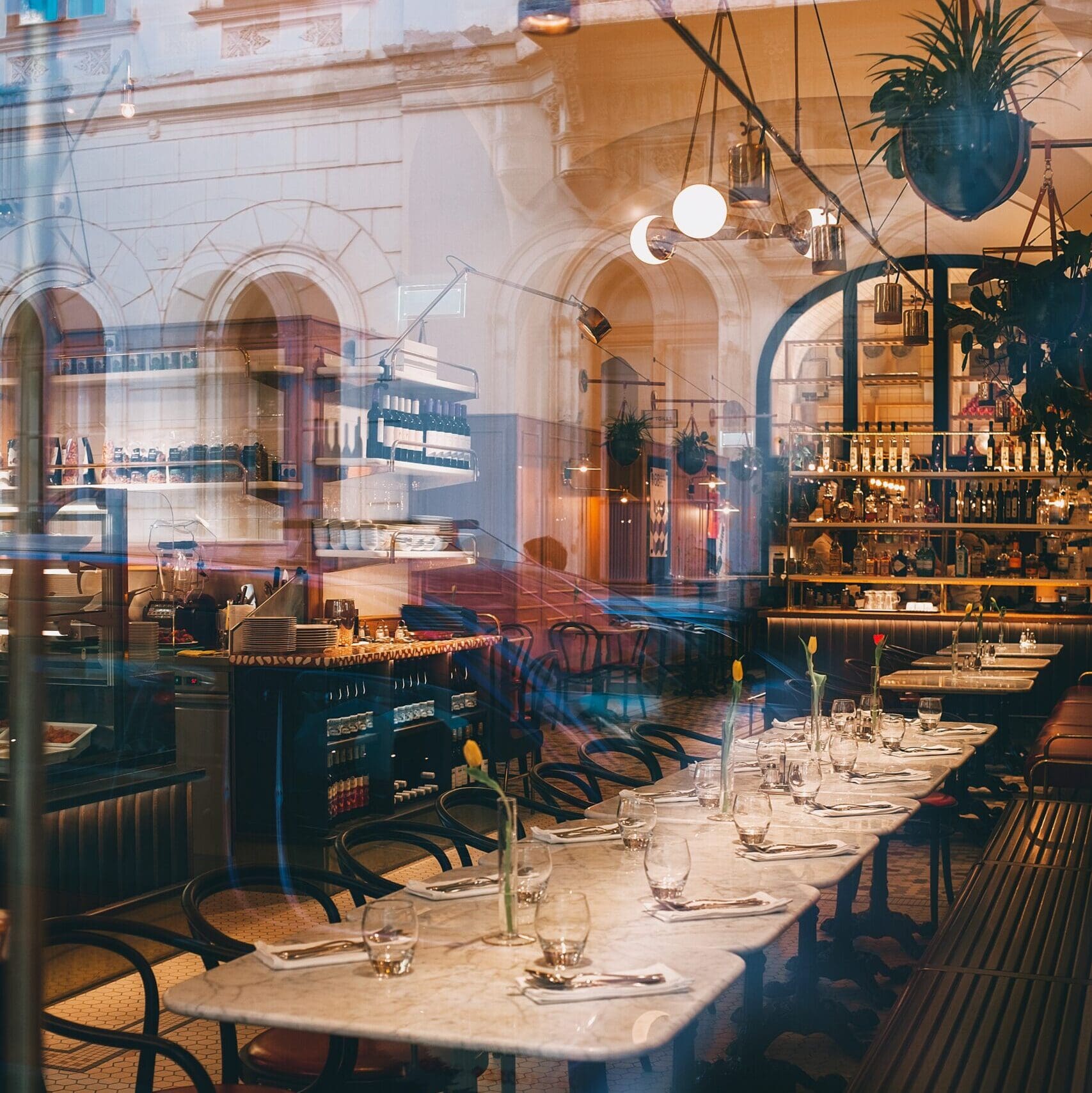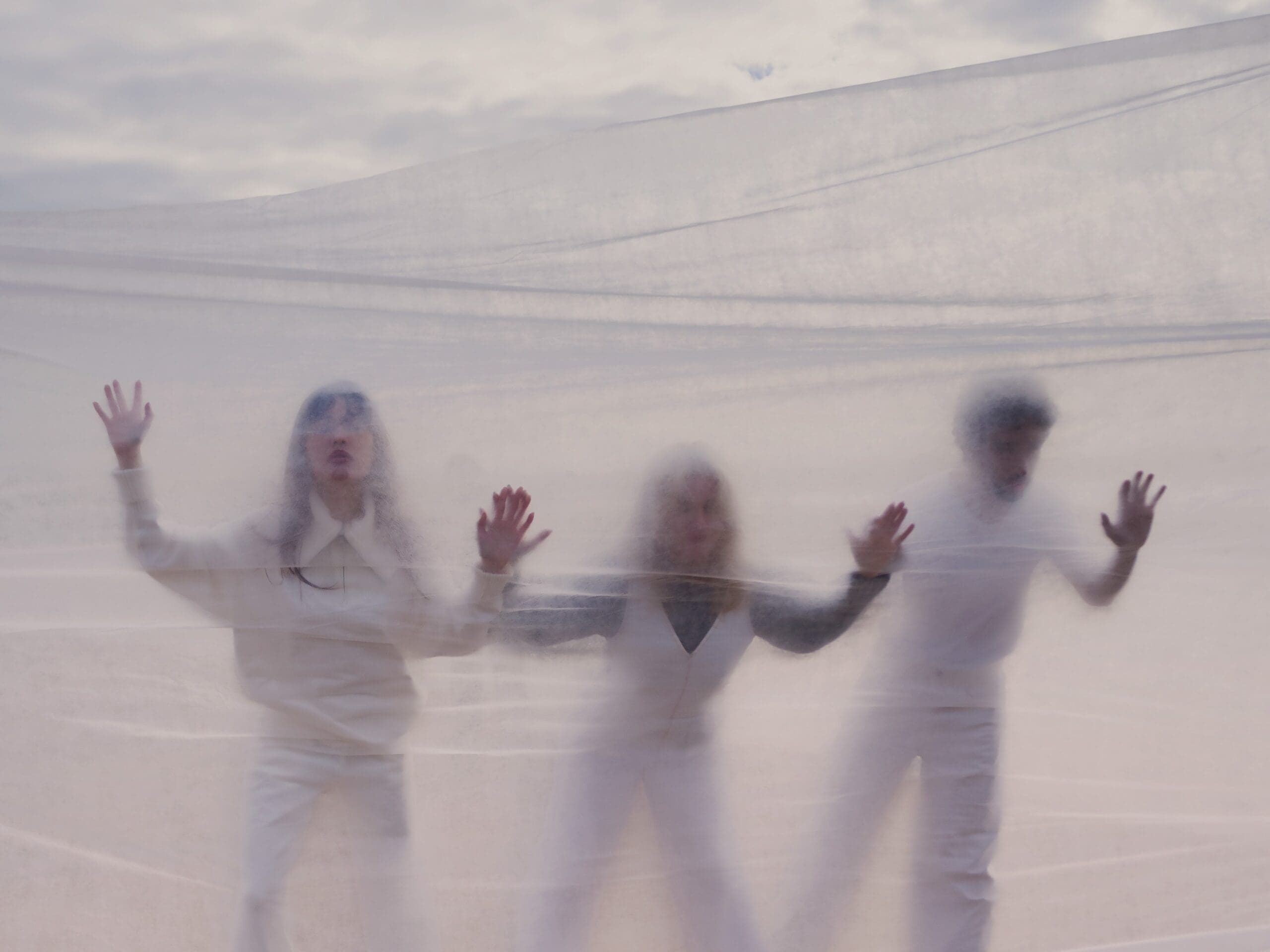The woman at the cafe was out of breath as she sat in the window seat looking through the early night at the few groups of young people who passed by on the sidewalk, laughing on their way to bars. She wore a long, bright dress that gave the impression she could be on a tropical vacation to watch birds, and she looked happy before she began to disappear.
“I wonder where they go,” the older barista said from behind the counter.
“They’re selfish,” his younger coworker said.
“It does no harm to us if the dead want a nice coffee every now and then,” the older barista responded. His hair had only begun to grey along the edges, and the lines on his face were only beginning to deepen. He could have held onto his youth for as long as possible, but maybe last year, or perhaps even yesterday, he would have looked into the mirror and realized his youth was truly gone.
“Management says they’re bad for business. They never pay, you know,” the younger man said.
“Serving a few ghosts won’t shutter our doors.”
The younger barista walked off to dim the lights surrounding their last remaining customer of the night, an elderly man in a tweed coat and bowler cap from the previous century.
“That’s very rude,” the older barista said.
“He’s already lived his life. I want to live mine. What’s so wrong with that?”
“He could be from the neighborhood. We don’t know for certain he’s one of them. We should close up what we can around him.”
Smirking, the younger man tapped a button on a computer screen and the printer spat out a bill. “Living people don’t drink coffee this late, and I want to lock up before the drunks come in. Look, I’ll drop off his bill, and if he disappears you owe me your tips.”
The older barista shook his head and began counting the register. Recently, management sent down a memo stressing the importance of refusing service to the departed. Their presence had become common in the cafe’s end of town.
“Someone who’s about to join the drunks shouldn’t disparage them so,” the older barista said.
“When I’m drunk I go where I belong. I stay in bars where I can drink as much as I want and I don’t disturb anyone or interfere with their lives. And maybe it’s loud and I drink until my head is gone and I can’t hear myself think, but that’s my problem. I’m not barging into a nice, quiet cafe.”
The younger man dropped off the bill at the customer’s table, and the man continued drinking his coffee without acknowledging him.
“Your count is going to be off. I don’t want to show up tomorrow to the manager yelling at me for your mistake,” he told the older man.
The older man nodded to their elderly customer who faded like a charcoal drawing smudged until all that was left was a blur.
“They’re selfish,” the younger man said.
“They’re dead,” his older coworker responded.
“Then why won’t they stay dead? They don’t belong here. When I’m dead I’ll stay that way. I’ll let the worms eat me and I won’t harass people who still have their lives.”
“You’re mourning your life when it’s barely begun.”
The older barista grabbed from the tip jar and closed the ghost’s ticket. “You can have the rest. Nothing here for the management to worry about,” he said.
Wordlessly, like two parts of a resentful machine, they completed their final tasks before turning off the lights. They mopped the floors, cleaned the last of the dishes, and made sure everything was in its place for the openers who would complain regardless.
“I hate this place,” the younger coworker said as he put on his jacket to leave.
“It’s as good a cafe as any.”
“I hate serving people. And the ghosts don’t even tip.”
“And what will you do instead, get drunk?”
“I’m going to finish my degree and make something of myself. I don’t want to end up like you, middle-aged and still pouring coffee for dead people.”
#
The older man walked alone down the windblown avenue. A couple of years ago the area would have been crawling with crowds going to bars and clubs, but now he passed only a few groups of hipsters and college students. Plastic bags blew in the street and clogged in the gutters, and most of the storefronts he passed by had been shuttered. A blue, paper mask hung from a door handle. He usually had no problem with the quiet of the streets. In fact, he often enjoyed walking home in the solitude of his thoughts. It was a quiet, clear night.
Nearing the end of the business district, he saw a bar he’d never noticed before. Its neon sign swarmed with tiny, brown moths. It was the sort of night where he wanted a drink before heading home. He wanted to pull a weighted blanket over his thoughts, to be somewhere among warm voices and beating hearts before he retreated into sleep. The vaporous form of insects parted to let him through.
If the dead didn’t belong in this district, where did they belong? He slumped at the end of the bar and ordered a bourbon on the rocks, sitting cloaked in shadows like the rest of the clientele.
“You too?” a voice called out to him from the opposite end of the bar. He recognized his young coworker’s silhouette and raised his glass to the man before he went back to staring at his drink and the wall in front of him.
“Don’t be like that,” the coworker slurred, moving seats to join him. “We’re off the clock now. It’s no use holding onto that old bitterness.”
“So this is where you belong?” the older man asked.
“It’s good to belong somewhere.”
“I suppose you’re right. If you don’t belong anywhere you’ll be adrift in a weightless world. Wherever you go, people will tell you you’re trespassing. Move along. But it’s arrogant to believe you can’t be uprooted at the snap of a finger.”
In the tables behind them, old-timers played hands of penny poker. Aces and queens slid across the table in straights and flushes. The old men laughed and slapped their knees. They were all dressed in their Sunday best.
“I need to get my life together before I end up like them,” the younger man said.
“They seem happy enough,” the older man responded.
“They’re old drunks who’ve ended up in this bar.”
“You don’t know their stories.”
“They’re probably dead already, the lot of them.”
“If the ghosts want a drink or a cup of coffee, I see no harm in it.”
“You’ve never taken any classes in economics, have you?”
“I suppose I haven’t.”
“Imagine the hundreds of thousands of ghosts, all of them with their free coffees, their unpaid cab rides. It has to add up. Look at this town. It’s become a slum. I’m going to get out while I still can.”
The bartender poured them another drink.
“I’ve done enough mourning that I don’t care about economics,” the older man said. “If I could know the people I’ve lost were only in some coffee shop, if I knew someone would buy them a drink when they needed it, it would bring me a great deal of peace. Tell me, have you lost anyone?”
“No, I suppose I haven’t.” the younger man responded.
“That explains it.”
“I only want to live my life. What’s so wrong with that?”
“Think about the economics of loss. People die every day and we’re expected to mourn at night and show up to work the next morning as if nothing has happened. Where does all that sadness go? It has to make its home somewhere.”
“I only want to live my life,” the younger man muttered into his drink.
The older man continued, “I knew that the last customer was a ghost the whole time. And I’m glad I served him. I don’t care what management says.”
“You might have known, but I don’t think he did. I think their minds are too scattered. One moment they’re drinking coffee and then the next they remember, and they disappear. Is it really so kind to keep them deluded?” the younger man said.
The room had grown quiet as one by one the other customers dissipated into the shadows. Soon the two of them would be alone with the bartender.
The older man noticed his coworker’s brown suit. It surprised him that the young man had found time to change before he made it to the bar.
“That’s a nice suit, but it hangs off your shoulders,” he said.
“It was my father’s. He thought I deserved something nice to wear,” the young man said.
The younger man gestured to that bartender, who refilled their glasses. “What do you think of all your customers disappearing?”
“It’s not their fault,” the bartender said. He wore nice black slacks, a white button-up shirt, and suspenders, and he seemed altogether more formal than the rest of the bar. “If I don’t expect anything out of life, it can’t hurt me, right?” he said while he walked away.
“And what do you want from life?” the younger man asked his companion.
The older man ruminated for a moment. He felt himself getting drunk. It was late enough he should have been sleeping. “I don’t know, really. Not one bit anymore. I found my way into this life without ever once thinking about what I wanted. I was young like you once. It might be hard to believe, but I was smart too. I could have been anything, but I floated around without agency or intention. I always thought I’d find my way somewhere special, somewhere I fit perfectly, that the decisions would be made somewhere deep in my heart. But here I am.”
The younger man seemed distracted, talking more to himself than to his companion, “My father thought I deserved something nice to wear, considering. I only want to live my life. What’s so wrong with that.”
The older man took a drink and looked over at his friend who had begun to lose coherence. The younger man smudged at the edges. In the space of a blink, his companion was only a blur, and then only a shadow. Then there was only silence and an unfinished drink where a young man of arrogance, vigor, and expectation had been.
The bartender grabbed the glass from the now vacant seat at the counter.
“Did you know?” the older man asked the bartender, who polished a pint glass with a clean towel without looking up. “If I don’t expect anything out of life, then it can’t hurt me, right?” he responded to his last remaining customer.
The bartender walked off to collect the rest of the glasses from the tables, and by the time he reached the other end of the room he was only a faint blur.
The older man sighed and finished the rest of his drink. He looked at his hands, feeling untethered like he could float away at any moment. His fingerprints could blur and the little hairs dissipate into the air.
He left the bar, and a bell rang quietly over the door frame. It was a small, tinny sound. The wind blew him this way and that.
Mark L. Anderson lives and writes in Spokane, Washington. He co-founded the popular Broken Mic spoken word poetry series and has traveled the United States performing at open mics, poetry slams, taverns, coffee shops, and libraries. He has received a GAP award from Washington Artist Trust and was named the inaugural Ken Warfel Fellow by poetrynight in 2012. From 2017 to 2019 he served as Spokane’s poet laureate. His first book, Scarecrow Oracle, was published by Korrektiv Press in 2022.




